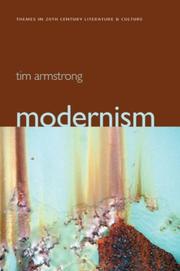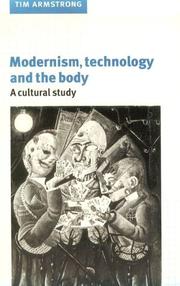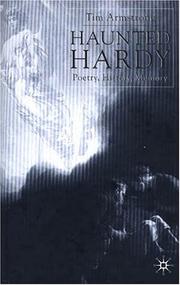| Listing 1 - 10 of 12 | << page >> |
Sort by
|

ISBN: 0745629830 0745629822 Year: 2005 Publisher: Cambridge Polity
Abstract | Keywords | Export | Availability | Bookmark
 Loading...
Loading...Choose an application
- Reference Manager
- EndNote
- RefWorks (Direct export to RefWorks)
Literature --- Sociology of culture --- 82 "19" --- Literatuur. Algemene literatuurwetenschap--20e eeuw. Periode 1900-1999 --- Culture. --- Modernism (Literature) --- 82 "19" Literatuur. Algemene literatuurwetenschap--20e eeuw. Periode 1900-1999 --- Modernism (Literature). --- Culture --- Crepuscolarismo --- Literary movements --- Postmodernism (Literature) --- Cultural sociology --- Civilization --- Popular culture --- Social aspects --- Modernisme (art) --- Modernisme (littérature)
Book
ISBN: 9781107607811 9781107025073 9781139177252 9781139518970 1139518976 9781139515467 1139515462 1139177257 9781139517119 1139517112 1107025079 1107607817 1107232074 9781107232075 1139508369 9781139508360 1283521792 9781283521796 1139518046 9781139518048 9786613834249 6613834246 1139514547 9781139514545 Year: 2012 Volume: 163 Publisher: Cambridge New York
Abstract | Keywords | Export | Availability | Bookmark
 Loading...
Loading...Choose an application
- Reference Manager
- EndNote
- RefWorks (Direct export to RefWorks)
In American history and throughout the Western world, the subjugation perpetuated by slavery has created a unique 'culture of slavery'. That culture exists as a metaphorical, artistic and literary tradition attached to the enslaved - human beings whose lives are 'owed' to another, who are used as instruments by another and who must endure suffering in silence. Tim Armstrong explores the metaphorical legacy of slavery in American culture by investigating debt, technology and pain in African-American literature and a range of other writings and artworks. Armstrong's careful analysis reveals how notions of the slave as a debtor lie hidden in our accounts of the commodified self and how writers like Nathaniel Hawthorne, Rebecca Harding Davis, Booker T. Washington, W. E. B. Du Bois, Ralph Ellison and Toni Morrison grapple with the pervasive view that slaves are akin to machines.
Commodificatie --- Commodification --- Esclavage dans la littérature --- Esclaves dans la littérature --- Marchandisation --- Reification --- Reïficatie --- Réification --- Slaven in de literatuur --- Slavernij in de literatuur --- Slavery in art --- Slavery in literature --- Slaves in literature --- Slavery in literature. --- American literature --- Slavery in art. --- Slavery --- Commodification. --- Reification. --- LITERARY CRITICISM / American / General. --- History and criticism. --- African American authors --- History and criticism --- History. --- Psychological aspects. --- Economic aspects. --- Abolition of slavery --- Antislavery --- Enslavement --- Mui tsai --- Ownership of slaves --- Servitude --- Slave keeping --- Slave system --- Slaveholding --- Thralldom --- Crimes against humanity --- Serfdom --- Slaveholders --- Slaves --- Slavery and slaves in literature --- Thingification --- Verdinglichung --- Philosophy --- Metaphor --- Commoditization --- Commerce --- Economic aspects --- Psychological aspects --- History --- 19th century --- 20th century --- United States --- Arts and Humanities --- Literature --- Enslaved persons --- Enslaved persons in literature

ISBN: 0521599970 Year: 1998 Publisher: Cambridge Cambridge University press
Abstract | Keywords | Export | Availability | Bookmark
 Loading...
Loading...Choose an application
- Reference Manager
- EndNote
- RefWorks (Direct export to RefWorks)
American literature --- Human body in literature. --- Literature and science --- Modernism (Literature) --- Psychology in literature. --- Technology in literature. --- History and criticism. --- History --- Human body in literature --- Psychology in literature --- Technology in literature --- Psychology as a theme in literature --- Body, Human, in literature --- Human figure in literature --- History and criticism
Book
ISBN: 1850757909 Year: 1996 Publisher: Sheffield Academic Press
Abstract | Keywords | Export | Availability | Bookmark
 Loading...
Loading...Choose an application
- Reference Manager
- EndNote
- RefWorks (Direct export to RefWorks)
Book
Year: 2001 Publisher: Oxford Oxford University Press
Abstract | Keywords | Export | Availability | Bookmark
 Loading...
Loading...Choose an application
- Reference Manager
- EndNote
- RefWorks (Direct export to RefWorks)

ISBN: 0333597915 Year: 2000 Publisher: Basingstoke Palgrave
Abstract | Keywords | Export | Availability | Bookmark
 Loading...
Loading...Choose an application
- Reference Manager
- EndNote
- RefWorks (Direct export to RefWorks)
Autobiographical memory in literature --- Death in literature --- Ghosts in literature --- History in literature --- Literature and history --- Memory in literature --- History --- Hardy, Thomas, --- Poetic works.
Book
Year: 1998 Publisher: New York Cambridge Melbourne Cambridge University Press
Abstract | Keywords | Export | Availability | Bookmark
 Loading...
Loading...Choose an application
- Reference Manager
- EndNote
- RefWorks (Direct export to RefWorks)
Human body in literature --- Technology in literature --- Psychology in literature
Digital
ISBN: 9781139177252 Year: 2012 Publisher: Cambridge Cambridge University Press
Abstract | Keywords | Export | Availability | Bookmark
 Loading...
Loading...Choose an application
- Reference Manager
- EndNote
- RefWorks (Direct export to RefWorks)
Thematology --- American literature --- United States of America
Book
ISBN: 9789464261066 9464261064 Year: 2022 Publisher: Leiden : Sidestone Press,
Abstract | Keywords | Export | Availability | Bookmark
 Loading...
Loading...Choose an application
- Reference Manager
- EndNote
- RefWorks (Direct export to RefWorks)
"One day, sometime around 1700 BC, a bronzesmith made the first sword. This marked a technological turning point, giving rise to an arms race that has never since ceased. Soon, over a vast area between the Baltic Sea and the Atlantic Ocean, thousands of weapons were manufactured. They were used in combat, then laid to rest, whole or broken, often during complex rituals that are still hard for us to understand.Through the sword, the Bronze Age brought war into being. The warrior became an important figure. Societies were transformed, and came to revolve politically and economically around warfare. Western Europe developed new social structures, a new kind of civilisation involving neither towns, nor writing.By tackling the subject ‘a call to arms’, Anne Lehoërff investigates war’s long-term development. She focusses on oral societies which have for a long while remained poorly understood, passed over by a historical tradition that saw the world of Classical Antiquity in a different light to that of ‘primitive’ peoples. But our European ancestors have their own history, and this book tells it.Anne Lehoërff is Professor of Archaeology at CY Cergy Paris University, and she presides the ‘Conseil National de la Recherche Archéologique’. The French edition of A Call to Arms was awarded the Verdun World Peace Center History Prize in 2018."--Provided by publisher.
Periodical
Year: 2013 Publisher: Edinburgh Edinburgh University Press
Abstract | Keywords | Export | Availability | Bookmark
 Loading...
Loading...Choose an application
- Reference Manager
- EndNote
- RefWorks (Direct export to RefWorks)
| Listing 1 - 10 of 12 | << page >> |
Sort by
|

 Search
Search Feedback
Feedback About UniCat
About UniCat  Help
Help News
News